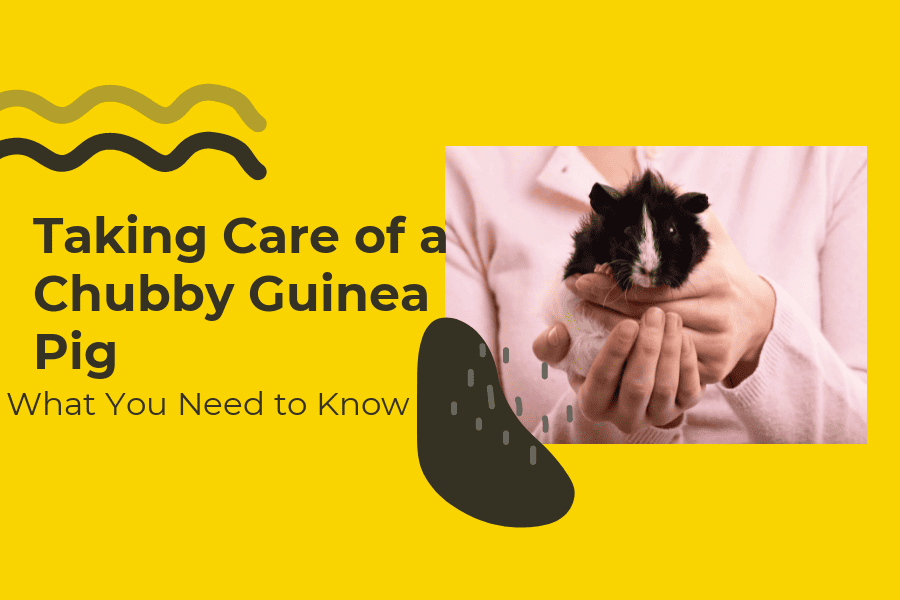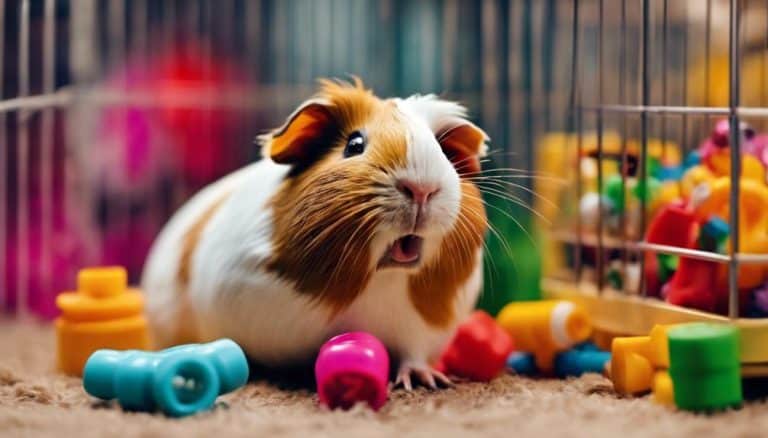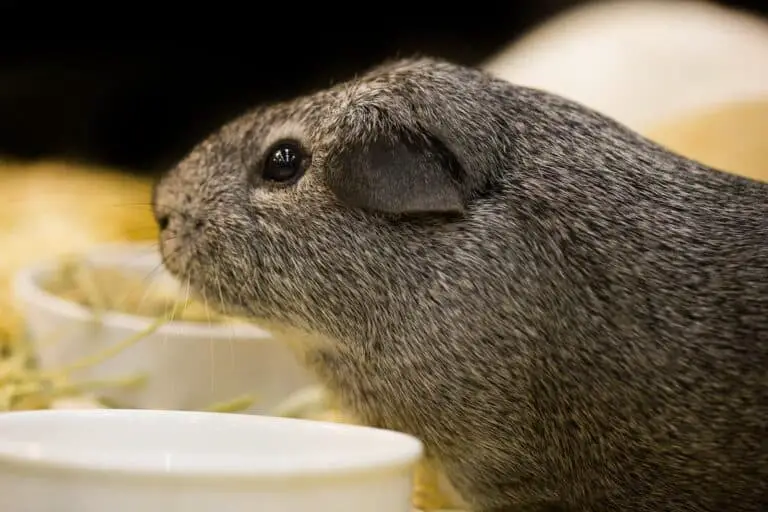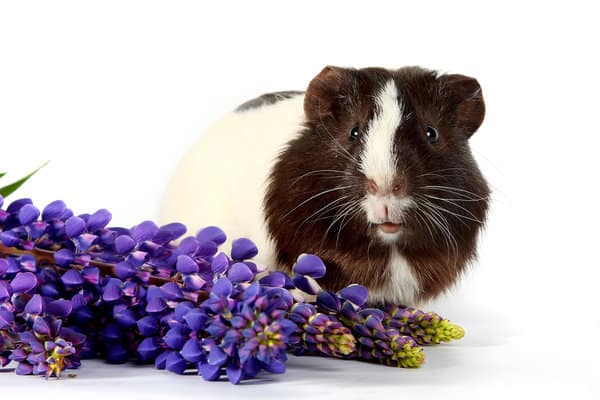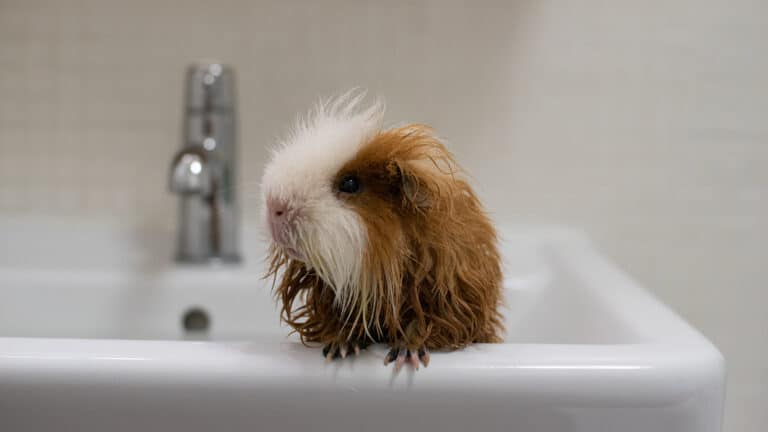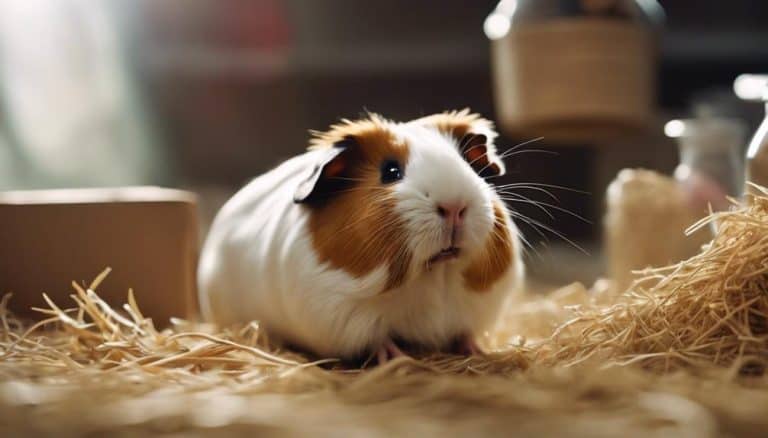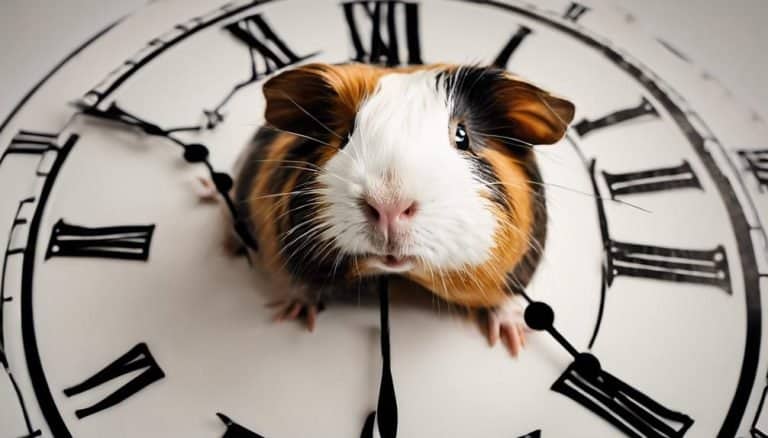Taking Care of a Chubby Guinea Pig: What You Need to Know
Taking care of a chubby guinea pig is no different than caring for any other type of guinea pig. The best way to ensure your pet stays healthy and happy is to provide it with a nutritious diet, plenty of exercise and fresh water.
Make sure the guinea pig’s environment is clean and free from any potential health risks or hazards.
A balanced diet should include fresh vegetables and hay, as well as a vitamin supplement if needed.
Daily exercise is also important for your little friend, so make sure to provide them with plenty of space to run around in safely.
Keeping their water bowl full and clean is also essential, as well as making sure they have access to soft bedding materials such as straw or wood shavings.
Lastly, regular check-ups at the vet are important for detecting any potential health issues that may arise. With these tips in mind, you can be sure your chubby guinea pig will live a long and happy life!
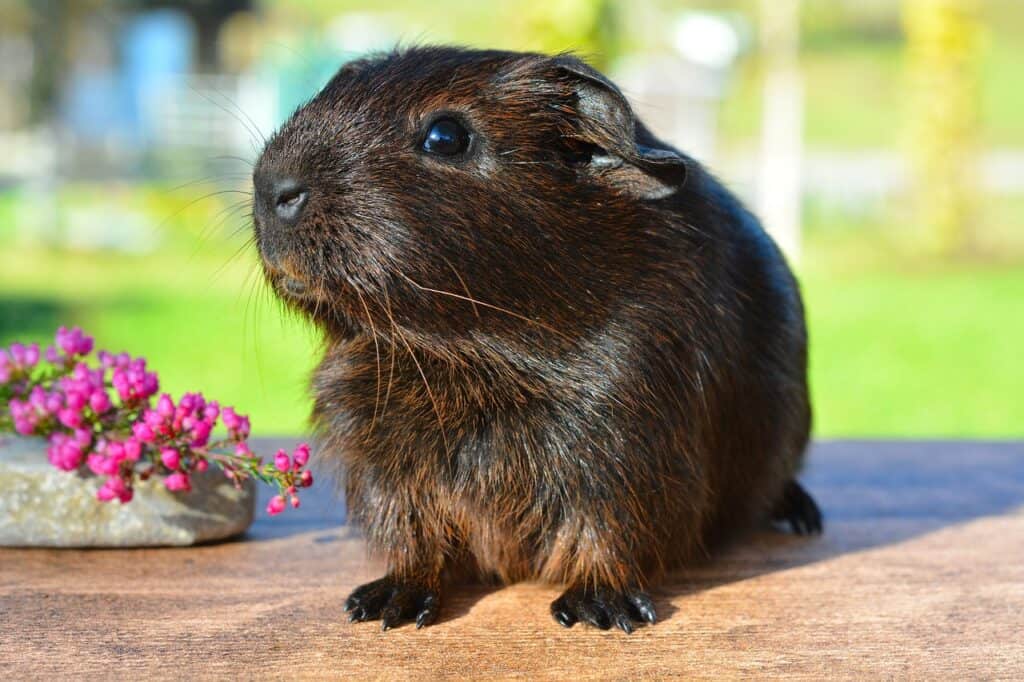
Are Guinea Pigs Supposed To Be Overweight?
Guinea pigs are not supposed to be overweight. Pigs, like all other animals, need to stay at a healthy weight in order to remain healthy and active.
Overweight guinea pigs can experience a wide range of health problems, such as difficulty breathing or joint pain. Keeping your piggy at a healthy weight is essential for its long-term health and well-being.
You can help your guinea pig maintain a healthy weight by providing them with plenty of exercise and the right diet. Make sure they get enough hay and vegetables, while limiting unhealthy treats like sugary snacks.
Additionally, ensure that your guinea pig has plenty of room to run around and play so that it can stay active and burn off extra energy. By following these simple steps you can keep your guinea pig happy and healthy for years to come!
Is your Guinea Pig overweight?
Guinea pigs can easily become overweight when they’re not kept on a healthy diet. As a pet owner, it’s important to assess your guinea pig’s weight and ensure that they are not becoming too fat.
To determine if your guinea pig is fat, look at the fur and see if it looks smooth or patchy. If it is patchy, this could be a sign of obesity.
You should also check its bedding for signs of soil build-up due to lack of grooming, which can be caused by excessive fat. Additionally, you should also monitor their diet and make sure that their cage always contains hay and fresh vegetables and fruit high in vitamin C.
If you suspect your guinea pig is becoming overweight or obese, you should take them to the vet for supervision and advice on how to keep them healthy.
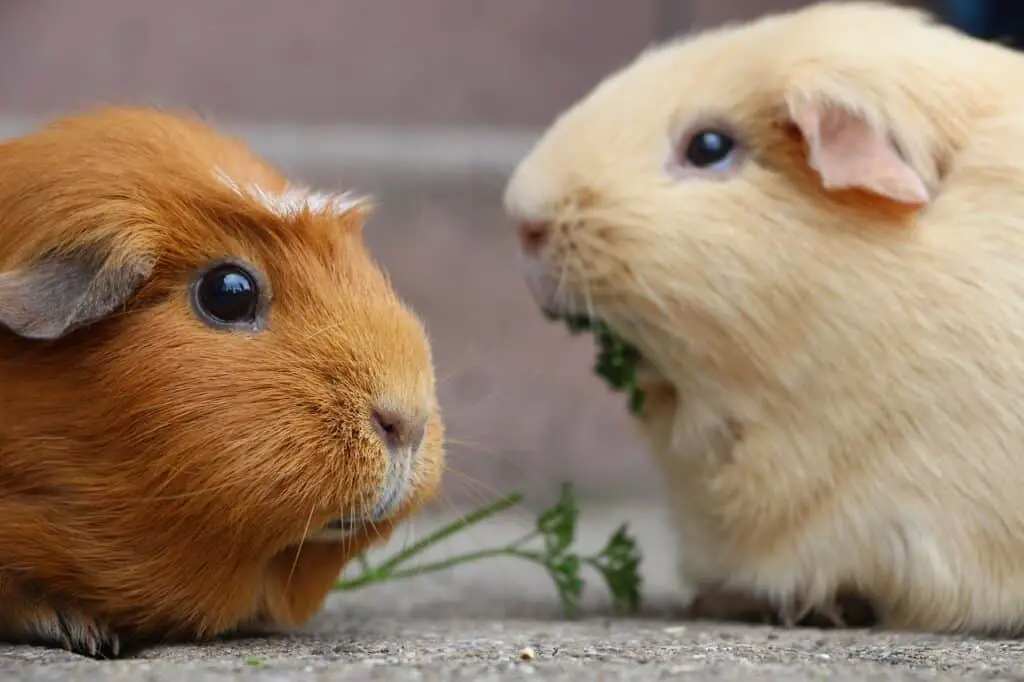
What Causes Obesity in Guinea Pigs?
Obesity in guinea pigs is a common problem and can lead to health problems that reduce the lifespan of your furry pet.
Guinea pigs can become chubby and really fat if they are fed too much or if they don’t have enough opportunities to forage. Obesity occurs when a guinea pig gains more weight than their body needs, which leads to an overweight guinea pig with a pudgy or “piggy” shape.
This can be caused by overfeeding, not enough hay, or not enough exercise in the cage. Your vet can help you create an appropriate diet for your pet and monitor their progress if obesity is suspected.
To keep your guinea pig healthy, it is important to limit the amount of food given and encourage plenty of movement in the cage. With proper care, you should have a healthy guinea pig who isn’t too fat or too skinny; just right!
A balanced diet and active lifestyle will help prevent your guinea pig from gaining weight and becoming an obese pet.
What Should Guinea Pigs Eat?
Guinea pigs are a popular pet for many households. They have specific dietary needs that must be taken into consideration in order to ensure their health and wellbeing.
A guinea pig’s diet should include fresh hay, pellets and vitamin C rich foods such as fruits and vegetables like peppers, kale, and oranges. Hay is an important part of a guinea pig’s diet as it provides essential fiber and helps keep the digestive system healthy.
Pellets provide essential vitamins, minerals, proteins, and fats that guinea pigs need daily. Vitamin C is also necessary for guinea pigs as they cannot produce it naturally like other animals can.
Fruits and vegetables are an excellent source of vitamin C which should be fed to your pet daily in order to help prevent common illnesses such as scurvy.
By ensuring your guinea pig has a balanced diet with all the necessary nutrients it needs, you will be able to keep your pet happy and healthy for years to come!
How To Help My Guinea Pig Lose Weight
If your guinea pig needs to lose weight then it is important to make sure they have a healthy diet. The amount of food you give your pet should be closely monitored as even small amounts can cause them to gain weight.
Pellets are the best type of food as they are low in fat and contain essential vitamins and minerals for a healthy guinea pig.
Make sure that your overweight guinea pig has plenty of space in their cage so that they can exercise, this will help them to burn off any excess weight.
Keeping track of the amount of food given and ensuring that your pet gets regular exercise is key to helping them return to a healthy weight. With the right care, you’ll soon have a happy, healthy guinea pig!
Hazards of Having an Overweight Guinea Pig
Having a fat guinea pig can be dangerous for their health. Obesity in guinea pigs is just as bad as it is with humans, and can lead to serious complications if not taken care of immediately.
Extra weight on a guinea pig makes it difficult for them to groom themselves properly, which can lead to their fur becoming matted and soiled with their own urine.
Not only that, but the extra weight puts strain on their already fragile bodies, making them more prone to injuries and other illnesses.
Lastly, having a fat guinea pig means that they will require a larger cage than usual, as the extra weight will reduce the amount of space they have to move around.
If you notice your guinea pig gaining too much weight then it’s important to take action as soon as possible in order to keep them healthy and safe.
How to Control Guinea Pigs Weight
Keeping your guinea pig at a healthy weight is an important part of their overall health and wellbeing. One way to do this is to make sure hay is available for them to forage in their cage all day long.
Grass hay or other types of hay are a good source of fiber that helps keep their digestive system running properly. Additionally, you should feed them a quality pellet food made specifically for guinea pigs that contains vitamin C, which is essential for their diet.
You can also supplement with vegetables and fruits as treats but be sure not to give them too much as it can lead to obesity. It’s also a good idea to take your furry friend to the vet regularly so they can be weighed and monitored for chubbiness.
With the right combination of hay, pellets, fresh vegetables and fruit, regular vet visits, and plenty of exercise you’ll have your guinea pig at a healthy weight in no time!

